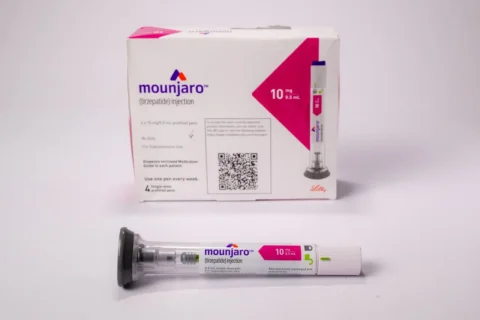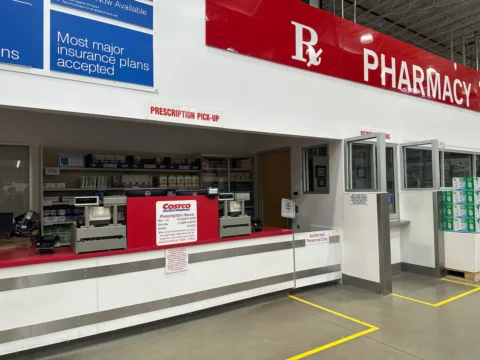Losing weight is a significant achievement, but maintaining it can feel like an entirely new challenge. For many, the struggle to keep weight off stems from slipping back into old habits or feeling overwhelmed by the pressure to stay “on track.”
Enter mindful eating: a sustainable, compassionate approach that focuses on awareness, balance, and building a healthy relationship with food. By tuning into your body’s hunger and fullness cues, you can maintain your weight without restrictive diets or constant calorie counting.
In this guide, we’ll explore how mindful eating supports weight maintenance and provide practical strategies to help you stay consistent long after reaching your weight-loss goals.
Why Is Maintaining Weight So Hard?
It’s no secret that keeping weight off is often harder than losing it. Several factors can contribute to weight regain:
- Old Habits Resurface: Emotional eating, snacking out of boredom, or overeating at meals can creep back in.
- Biological Changes: After weight loss, your body may burn fewer calories, making it easier to gain weight.
- Diet Fatigue: Relying on strict diets can lead to burnout and cravings.
Mindful eating tackles these challenges by shifting the focus away from rules and restrictions toward awareness and flexibility.
How Mindful Eating Helps Maintain Weight Loss
Mindful eating focuses on consistency, balance, and self-awareness—three key factors for long-term success. Here’s how it works:
1. Prevents Overeating
Mindful eating teaches you to recognize when you’re truly hungry and when you’ve had enough. Slowing down and savoring your food makes you less likely to eat past fullness or consume unnecessary calories.
2. Breaks the Cycle of Emotional Eating
Emotions like stress or boredom often drive overeating. Mindful eating helps you pause and ask, “Am I really hungry, or is this emotional?” This awareness can prevent mindless snacking and encourage healthier coping strategies, like taking a walk or journaling.
3. Encourages Enjoyment of Healthy Foods
By focusing on the flavors, textures, and smells of your meals, mindful eating makes nutritious foods more satisfying. This reduces the temptation to rely on less healthy options for comfort or pleasure.
4. Creates Sustainable Habits
Unlike restrictive diets, mindful eating fits into your lifestyle. There’s no “on” or “off” switch—you can practice it every day, at every meal, to reinforce healthy behaviors.
5. Builds Confidence in Food Choices
Mindful eating empowers you to make thoughtful, intentional decisions about what, when, and how much to eat. This confidence helps you maintain balance and avoid the guilt or frustration accompanying weight regain.
Practical Tips for Practicing Mindful Eating
Here are simple ways to incorporate mindful eating into your routine:
- Slow Down: Take your time during meals, chewing thoroughly and putting your utensils down between bites.
- Tune In to Hunger Cues: Ask yourself, “How hungry am I right now?” before eating. Stop when you feel satisfied, not stuffed.
- Eliminate Distractions: Turn off your phone or TV and focus on your food and surroundings.
- Practice Gratitude: Before eating, take a moment to appreciate your meal and the effort that went into preparing it.
- Reflect After Eating: Notice how your body feels after a meal. Are you energized? Still hungry? Overly full? Use these insights to guide future choices.
How QuickMD Can Help with Weight Maintenance
For many, maintaining weight loss requires more than mindful eating alone. QuickMD offers additional tools and support to help you stay on track:
- GLP-1 Medications: Medications like Ozempic, Wegovy, and Mounjaro help control appetite and support long-term weight management.
- Personalized Guidance: QuickMD’s licensed providers offer tailored advice to help you navigate challenges and maintain healthy habits.
- Convenience: QuickMD offers same-day online consultations, making it easy to access professional care and weight-loss support from home.
FAQs About Mindful Eating and Weight Maintenance
Can mindful eating help prevent weight regain?
Yes! By tuning into your hunger and fullness cues, mindful eating helps prevent overeating and emotional eating, making it easier to maintain weight loss.
Do I need to practice mindful eating at every meal?
While it’s ideal to practice mindful eating consistently, even small efforts—like eating one meal without distractions—can make a difference.
How do medications like Ozempic complement mindful eating?
GLP-1 medications help reduce appetite, making it easier to recognize and respond to true hunger cues. Combined with mindful eating, they can enhance weight-loss maintenance.
Is mindful eating difficult to learn?
Not at all! Mindful eating is about small, intentional steps. Start by slowing down your meals and focusing on the flavors and textures of your food.
Can QuickMD help me maintain my weight after weight loss?
Yes! QuickMD provides access to licensed providers who can help you create a personalized plan for long-term success, including medications and mindful eating strategies.
Mindful Eating and Maintaining Weight Loss: Final Thoughts
Maintaining weight loss doesn’t require restrictive diets or constant calorie counting. Mindful eating offers a flexible, sustainable approach to building healthy habits, tuning into your body’s needs, and enjoying food without guilt or stress.
Pair mindful eating with professional support for even greater success.
Schedule a consultation with QuickMD to explore weight-management tools like GLP-1 medications and personalized care. Together, we’ll help you maintain your results and achieve lasting health.




